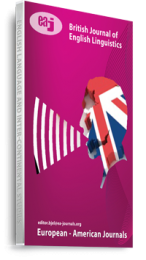Thanking is one of the best ways to maintain harmony between people. As face is so fragile, thanking is of the effective ways to saves face of the interlocutors. This being said, thanking is an indispensable part of language. This study deals, not only with thanking as it is, it studies another topic and that is ‘gender’. Some studies showed that some linguistic items are used in different percentages among speakers when it comes to gender; say, females are more polite to some extent. Iraqi EFL learners are the sample of this study. This type of study, i.e. to know the differences between males and females concerning a specific area in linguistics is new and exciting. The aims of this study are the following:
- Finding out the strategies Iraqi EFL learners use concerning the speech act of thanking.
- Concluding whether female learners thank more than the males overall.
To fulfill these aims, it is hypothesized that:
- Iraqi EFL learners use the direct (or explicit) strategies to thank more than the indirect (or implicit) ones.
- Female learners use more thanking strategies than the male ones.
After presenting the literature, the researcher conducts a test to a random sample of Iraqi EFL fourth year students at the Department of English/ College of Education for Human Sciences.
University of Babylon (2016-2017) The results of the test are analysed as well. After applying the test to the sample, he researcher concluded that the students used the direct strategies to thank almost all the time and they even left some of the strategies (especially the indirect one) unused. This emphasized the first hypothesis of this study. As for gender; females used thanking strategies a bit less than the males and this conclusion rejects the second hypothesis of the study.
Keywords: EFL Learners’, Gender, Implicit, Speech Acts., Strategies., explicit, felicity conditions, thanking

